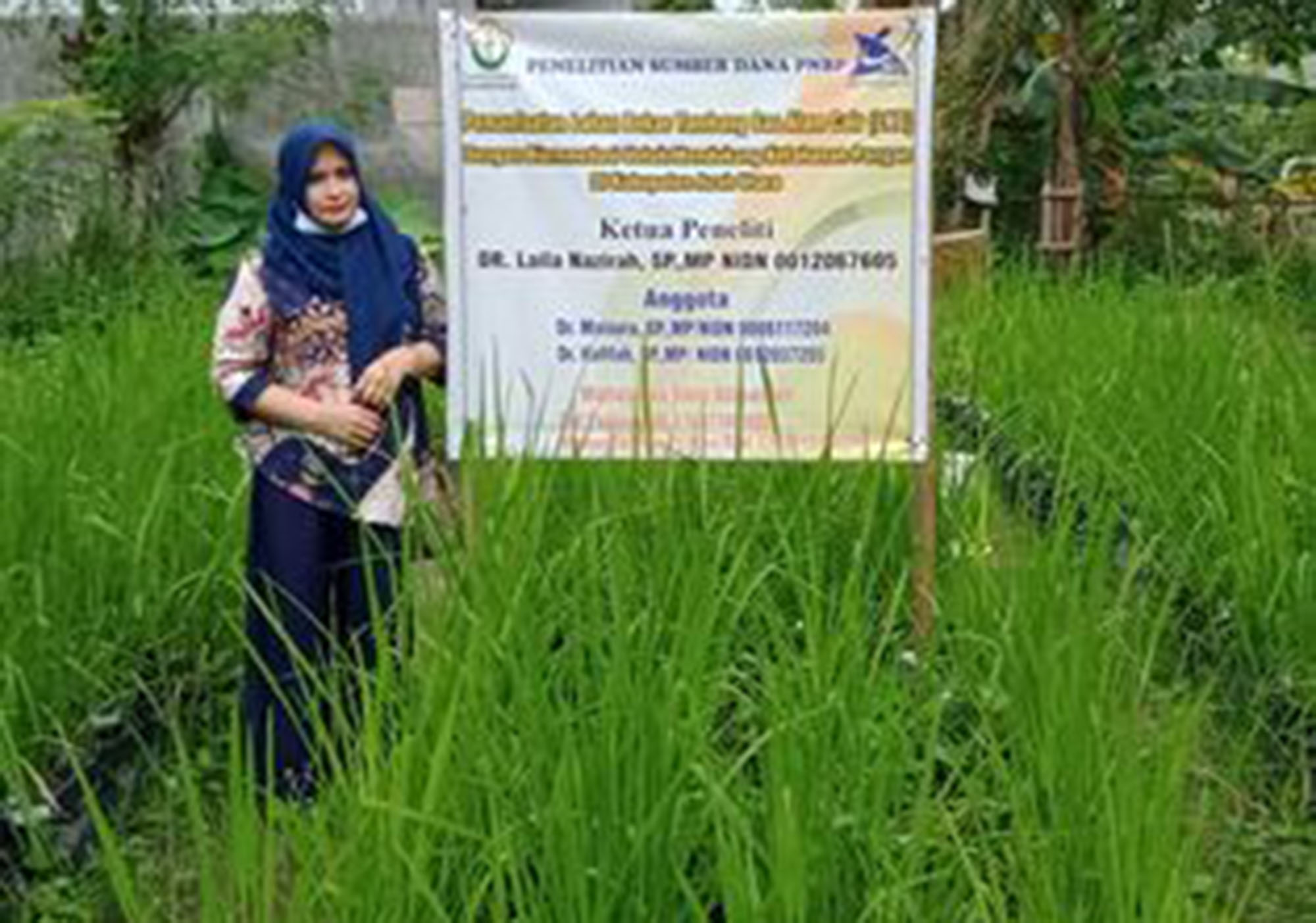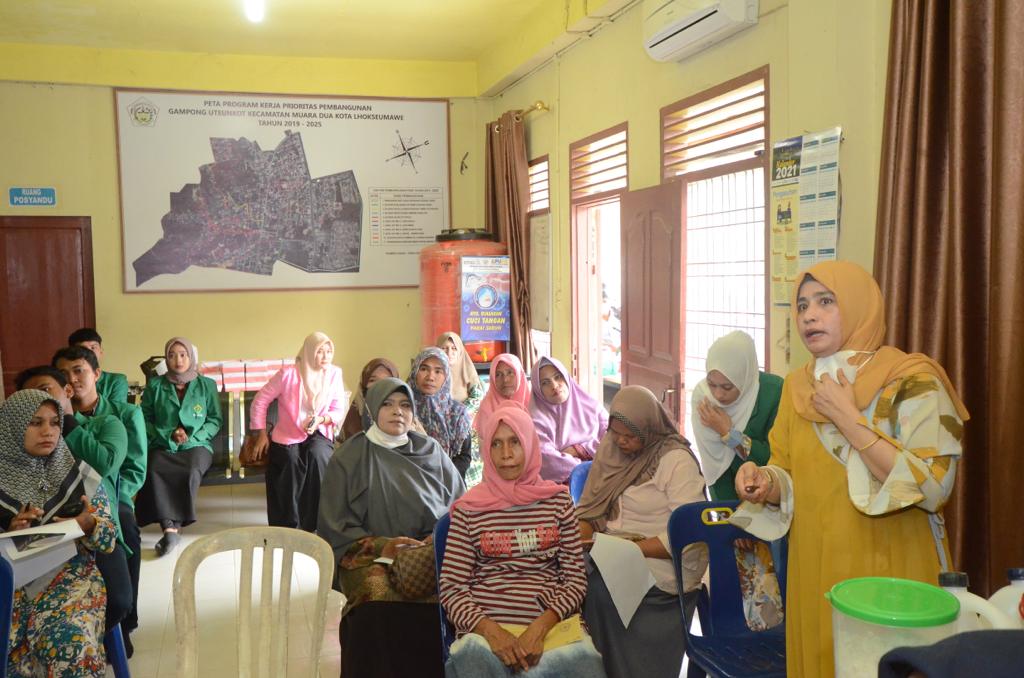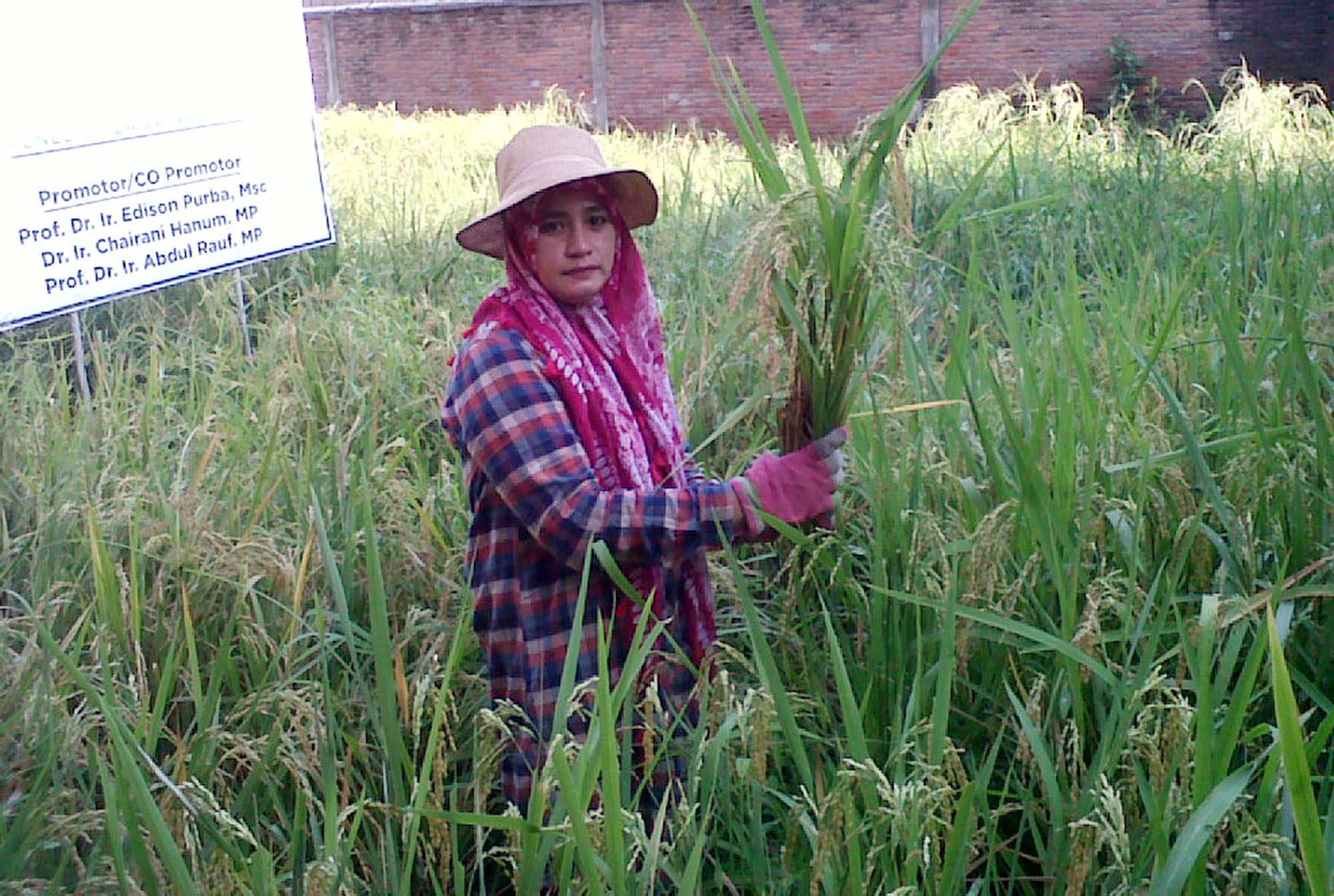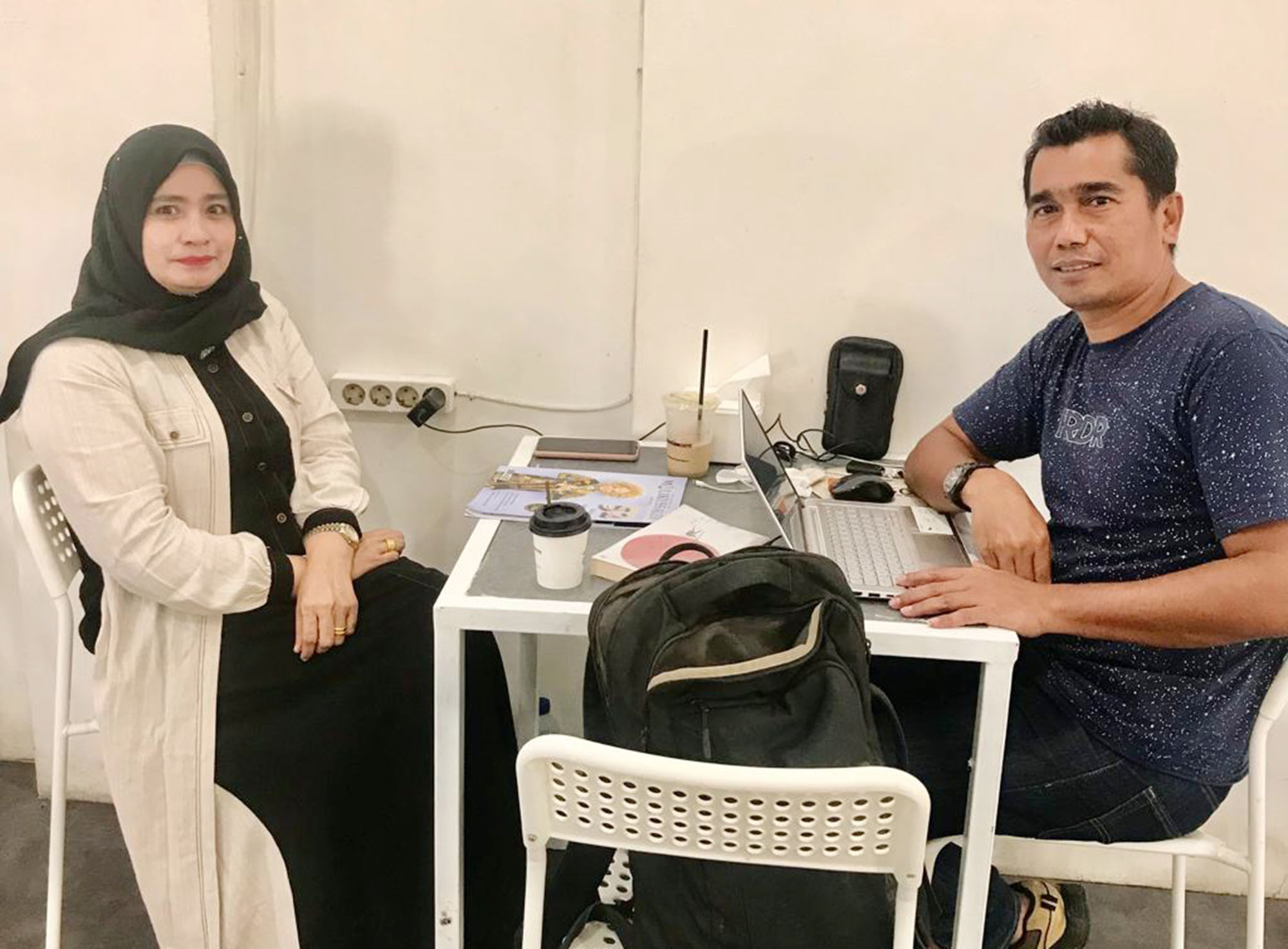Developing Local Rice Varieties and Caring for local wisdom | Part-1
hive-161155·@ayijufridar·
0.000 HBDDeveloping Local Rice Varieties and Caring for local wisdom | Part-1
 *** FOR Dr Laila Nazirah, rice is like a first love that blooms too late. Even though she owns rice fields, teenage Laila didn't even like rice fields at first, until later when she was in bachelor's degree she found her world so close but neglected for dozens of years. And like true love, once he fell, Laila never looked back. The lecturer at the Faculty of Agriculture, Malikussaleh University, is diligent in conducting research after research on rice and has long-term dreams that he will realize in the future. Laila Nazirah's passion for researching rice grew along with the many studies she conducted. Intense struggle with rice led to surprising facts about the wealth of Aceh rice lines that have the potential to be developed. Why did you fall in love with rice? Laila smiled faintly when asked that question. According to him, he focused on rice because it is the staple food of the Indonesian people. "That's the first reason. Second, my environment is not far from agriculture that glorifies plants, especially rice," he said. The enthusiasm to protect rice from extinction as the main food source has encouraged him to include technology in various research because if you only rely on conventional methods it will not grow and develop is not of good quality and is not effective and efficient so that it will not be able to meet the growing food needs. ### Technology vs local wisdom Laila also reminded us that the use of technology in food should not undermine local wisdom. For this reason, one of the focuses of his research is to collect local varieties in Aceh. “We see the advantages of each variety. We combine with other varieties, the target is to increase production," he said, smiling sweetly like fresh and pithy grains of rice. He admits, to improve quality and productivity, there is local wisdom in the social sector that is eroding, for example by adding a thresher or tractor. In the past, farmers worked together to plant and harvest, and now machines have replaced them. But time efficiency must also be considered. Technology does not all provide advantages, there are negative and positive sides. Conventional technology and methods also affect the quality of the rice. Without technology, when milled, rice can be broken. "There is rice without aroma, not fluffier. There is rice that looks good, white, and fat, but has no taste. Problems like this can be overcome with research and technology. However, local wisdom must still be maintained," added Laila, who won research funding from the Director General of Higher Education. ***  ***  *** # Mengembangkan Varietas Padi Lokal dan Merawat kearifan lokal BAGI Dr Laila Nazirah, padi itu seperti cinta pertama yang terlambat bersemi. Meski memiliki lahan persawahan, Laila remaja bahkan tidak menyukai sawah pada mulanya, sampai kemudian ketika kuliah S1 dia menemukan dunianya yang begitu dekat tetapi terabaikan selama belasan tahun. Dan sebagaimana cinta sejati, sekali ia jatuh, Laila tidak pernah berpaling. Dosen Fakultas Pertanian Universitas Malikussaleh itu tekun melakukan riset demi riset tentang padi dan menyimpan mimpi jangka panjang yang akan diwujudkannya di mas mendatang. Gairah Laila Nazirah meneliti padi pun tumbuh seiring dengan banyaknya penelitian yang dilakukan. Pergulatan intens dengan padi membawanya pada fakta mengejutkan tentang kekayaan galur padi Aceh yang berpotensi untuk dikembangkan. Mengapa sampai jatuh hati pada padi? Laila tersenyum tipis ketika disodori pertanyaan itu. Menurutnya, ia fokus ke padi karena menjadi makanan pokok masyarakat Indonesia. “Itu alasan pertama. Yang kedua, lingkungan saya tidak jauh dari pertanian yang memuliakan tanaman, khususnya padi,” ungkapnya. Semangat menjaga tanaman padi dari kepunahan sebagai sumber pangan utama, mendorongnya untuk menginputkan teknologi dalam berbagai riset, sebab kalau hanya mengandalkan cara konvensional tidak akan tumbuh berkembang, tidak berkulitas, serta tidak efektif dan efisien sehingga takkan mampu memenuhi kebutuhan pangan yang terus bertambah. ### Teknologi vs kearifan lokal Laila juga mengingatkan, penggunaan teknologi dalam pangan jangan sampai merusak kearifan lokal. Untuk itulah, salah satu fokus penelitiannya adalah mengumpulkan varietas lokal yang ada di Aceh. “Kita melihat keunggulan dari masing-masing varietas. Kita gabungan dengan varietas lain, targetnya ke peningkatan produksi,” ungkapnya, kembali tersenyum manis seperti bulir-bulir padi yang segar dan bernas. Ia mengakui, untuk peningkatan kualitas dan produktivitas, ada kearifan lokal di bidang sosial yang terkikis, misalnya dengan masuknya mesin perontok atau traktor. Dulu untuk menanam dan panen, petani saling bergotong-royong, sekarang sudah digantikan mesin. Tapi efisiensi waktu juga harus dipertimbangkan. Teknologi tidak semua memberikan keuntungan, ada sisi negatif dan positif. Teknologi dan cara konvensional juga berefek ke mutu berasnya. Tanpa teknologi, pada saat digiling, beras bisa patah-patah. "Ada beras yang tanpa aroma, tidak pulen. Ada beras yang bagus di tampilan, putih, gemuk, tetapi tidak ada rasanya. Masalah-masalah seperti ini bisa diatasi dengan riset dan teknologi. Tapi kearifan lokal tetap harus dijaga,” tambah Laila yang beberapa kali memenangi mendapat pembiayaan riset dari Dirjen Pendidikan Tinggi. *** 
👍 maskur2840, moeenali, kevinwong, mrwang, arconite, ayijufridar, nurhayati, razack-pulo, dilimunanzar, teukumukhlis, faizarfatria, helcim, hattaarshavin, suheri, abduhawab, team, kasih-sayang, happyphoenix, serenity-heart, tipu, magicmonk, kingscrown, mia-cc, bcm, dappstats, xtipu, kryptogames, kam5iz, boatymcboatface, theshell, cryptogambit, bartheek, atongis, longer, el-dee-are-es, munawar1, splash-of-angs63, zainalbakri, nadyahusna, pakmanan, bangjuh, andara, alqif, muammar-sports, luwak, felt.buzz, ichsannanda, pfunk, vannour, mapesa, nfttunz, freewritehouse, sustainablelivin, sarez, loch, deeanndmathews, bergelmirsenpai, flemingfarm, waivio.welcome, waivio.com, spaminator,